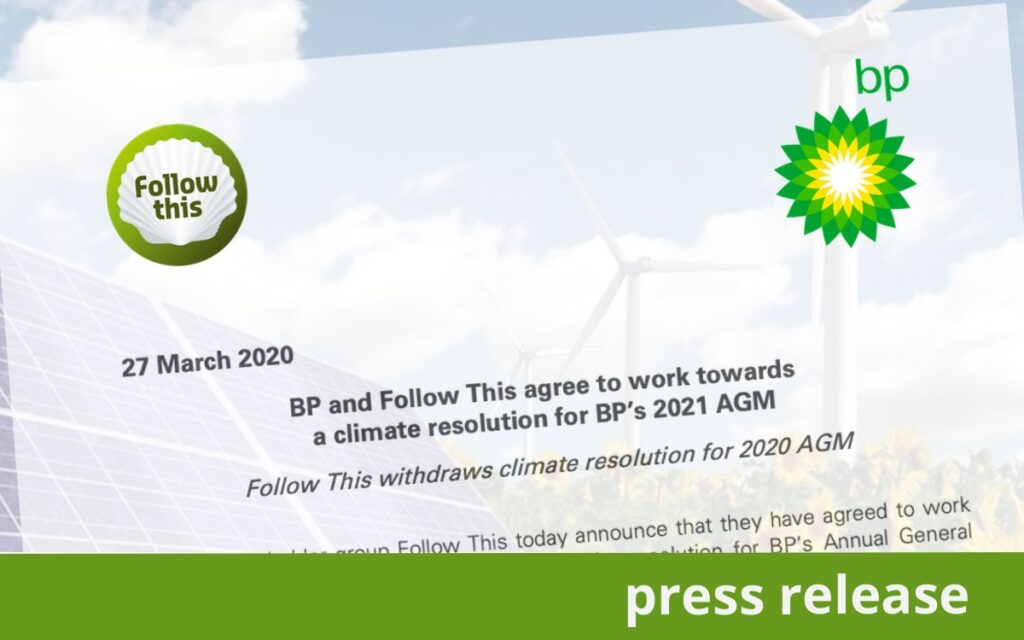Reuters | BP has abandoned its target to reduce oil and gas production by 2030. This decision comes as the new CEO, Murray Auchincloss, shifts the company’s focus back to traditional energy sources in an effort to boost investor confidence.
Originally, BP aimed to cut output by 40% by 2030 while expanding its renewable energy portfolio. This goal was revised to a 25% reduction in 2023. However, with investors prioritizing short-term profits over long-term sustainability goals, BP has now scrapped the target altogether.
Instead, the company plans to invest in new oil and gas projects, particularly in the Middle East and the Gulf of Mexico. This move aligns with a broader trend in the energy sector, with rival Shell also scaling back its renewable energy investments.

Shareholder votes: the key to climate action
What a contrast from 2020, when BP and Follow This issued a joint press release to work together on a climate resolution to drive the energy transition.
What happened? Investor pressure decreased.
In 2020, BP wanted to work with Follow This thanks to increased investor votes for the Follow This climate resolutions at Shell, BP, and Equinor in 2019.
In 2024, BP abandons the energy transition altogether due to decreased investor votes in recent years.
Therefore, BP’s refocus on fossil fuels is a direct result of the decrease in shareholder pressure to invest in clean energy.
Big Oil can make or break the Paris Climate Agreement. That’s a decision for shareholders. BP will only change if more shareholders vote for change.










